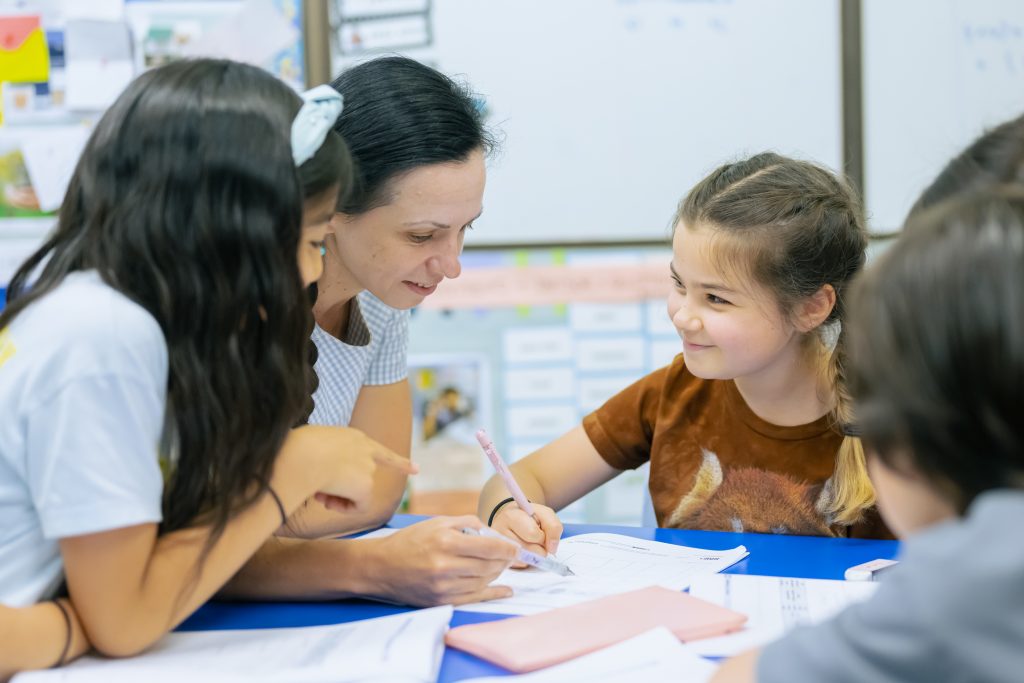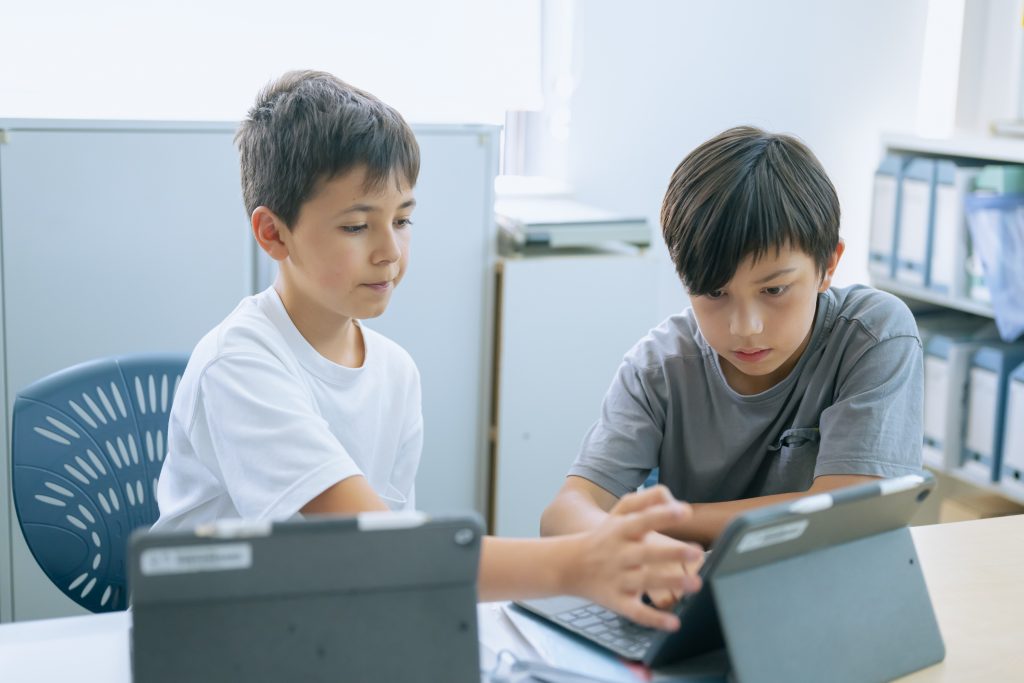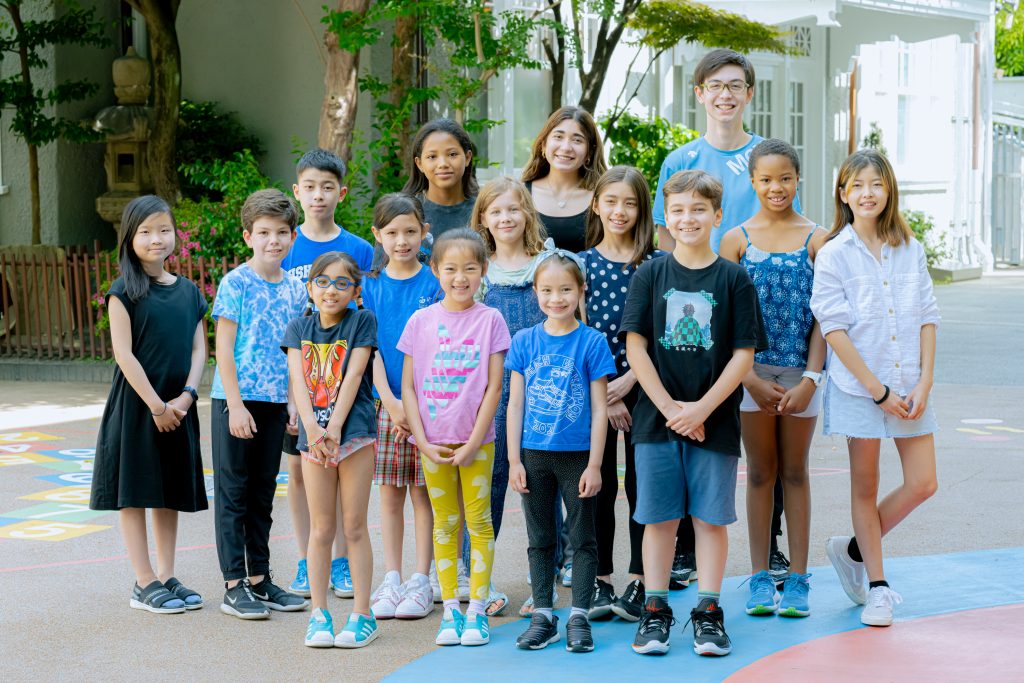Nishimachi Review

Nishimachi International School, established in 1949, is a co-educational, non-sectarian K-9 day school located in the Azabu area of Tokyo. English is the primary language of instruction at Nishimachi, although each of the 480+ students study Japanese language every day from beginner to native speaker levels.
Nishimachi is walking distance to Tokyo Academics, and we enjoy teaching and coaching many middle school students from the school, particularly regarding their decisions about where to attend high school after graduating from Nishimachi. While Nishimachi currently ends after 9th grade, it is thought that plans are currently being made to try and extend the school all the way up through 12th grade.
Unique to Nishimachi is the Tomo no Kai (TNK) parent association. All parents of Nishimachi students are automatically members of the association of friends. TNK’s objective is to create a sense of unity for the school, through putting on cross-cultural programs and social functions, and fundraising to support Nishimachi.
Admissions
Admissions at Nishimachi are screened, and the school expects that all applicants have grade-level proficiency in English (reading, writing, speaking and comprehension) and Mathematics. Japanese classes are structured according to students’ Japanese language proficiency as determined by Nishimachi. Prior attendance at a Japanese school does not guarantee placement in a Japanese first language class at Nishimachi.
Note also that it is the objective of the Nishimachi admissions team to connect with families who will “embrace, respect and uphold our mission and values” and it is preferred that at least one parent (preferably the primary caregiver) can communicate in English.

Education
With typical class sizes ranging from 15-22 students, and a student to teacher ratio of 7:1, learning at Nishimachi is both rigorous and nurturing. Mathematics, Science, English and Japanese are complemented with humanities and the arts, physical education and a health and wellness class. Students in Middle School have an “advisory period” in addition to the core subjects, whereby students meet in groups of 8-10 with an advisor to address social and emotional development.
A key focal point of the education at Nishimachi is the bespoke Japanese Language and Culture Program which routinely develops students into native-level Japanese speakers. The program incorporates 9 levels to meet the needs of every learner, regardless of ability, and through the program, students participate in Japanese Language or Social Science classes almost every day. Before graduation, students are required to write a graduation essay/thesis with an accompanying presentation to demonstrate their language skills before judges and an audience.
The 9th grade year at Nishimachi is tailored to help students prepare for their next steps after leaving the school, and each student receives support and one-to-one mentorship from staff members. 9th grade students typically take leadership roles in student government, arts and athletics and school events, and they enjoy special privileges including trips, celebrations and technology.
Leadership, Extracurriculars and Sports
Nishimachi offers students a number of different extracurricular opportunities to enrich their classroom learning. In addition to after school activities led by internal coaches and instructors, a variety of courses and lessons are offered by outside services. These activities include early-morning, after-school, or weekend sports and activities authorized by the school with or without fees.
Presently, 40% of elementary school students and 75% of middle school students actively participate in one or more of the extracurricular courses offered, including Hawaiian hula dance, drama, ikebana, computer club, Abacus, Japanese tea ceremony, Shuji, Girl Daisy Scouts, beginner and intermediate bands, tennis, aikido, fencing, soccer, volleyball and other programs. A full list of the courses currently available can be found here.
Middle school students compete in the Kanto Plain Middle School Sports League with other international and local schools at a number of sporting events, where the focus is to encourage the active participation in sports, to enhance the development of basic skills, and to promote good sportsmanship and cultural understanding among adolescents. Sports offered include soccer, basketball, volleyball, track and field, cross country running, and badminton.
Nishimachi, has a ‘no-cut’ policy for teams, productions and ensembles, which means any student, who wishes, can be included in the activity regardless of their level of expertise and thus benefit from the activity.

Outcomes
9th grade graduates from Nishimachi go on to attend a number of different high schools. According to the Nishimachi website students choose international high schools in Japan, such as the American School in Japan (ASIJ, 35%), Yokohama International School (10%), International School of the Sacred Heart (8%), St. Mary’s International School (4%), and Seisen International School (1%). Approximately 30% of Nishimachi graduates go overseas to high school, including Phillips Exeter Academy, Andover, Taft, and The Lawrenceville School in the USA, Cranbrook School in Australia and The American School in London in the UK.
After graduating high school, Nishimachi graduates have gone on to attend some of the most prestigious universities from all around the world, including Harvard, Columbia, New York University and UCLA in the United States, Cambridge, Oxford and Imperial College London in the UK, and Waseda, Keio and Kyoto Universities in Japan.
Despite ending at 9th grade, the school also keeps record of the career paths that alumni typically pursue after graduation from college or university. Nishimachi graduates go on into Education (13%), Finance (12%), Arts & Entertainment (8%), Information Technology (8%), Sales/Marketing (8%) Health Care/Medicine (6%) Engineering (5%), Travel/Transportation (5%), Government/Military (4%), Legal (4%) and Others (27%).
The information in this report comes from the experiences of Nishimachi students, the expertise of Tokyo Academics educators who work with students from Nishimachi on a regular basis, The Good Schools Guide International and The Nishimachi International School in Tokyo webpage.

